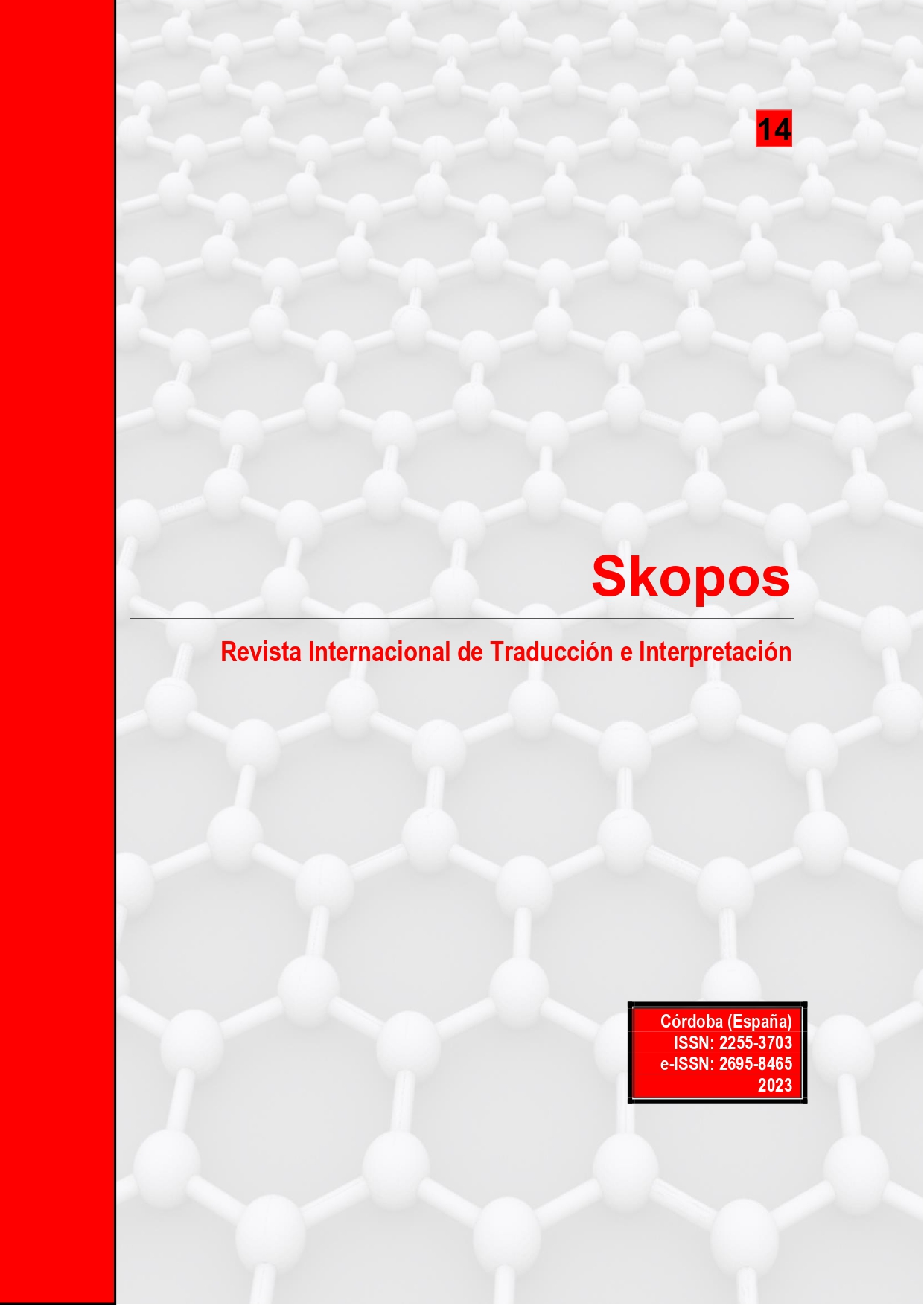The translation into Albanian of culturemes in Márquez’s Stories
(Based on the translation of Strange Pilgrims, by Mira Meksi)
DOI :
https://doi.org/10.21071/skopos.v14i.16221Résumé
The objective of our study is the analysis of the translation of the cultural elements of Márquez’s book, Strange Pilgrims, into the Albanian language. Cultural translation requires a complete understanding of the cultures that are involved in the exchange, so not only linguistic but also communicative, including gestures, rituals, etc. This approach exposes the translator to cultural differences and involves him in a transfer process, as illustrated in this article. Márquez proves that the cultural contrast between the Europeans and the South Americans is very significant, which makes the translator's task more difficult. The results of our analysis show us the difficulties of translating the culturemes, the challenges, and the achievements so that the Albanian reader can get hold of a literary creation close to the original. We think that the translator Mira Meksi has made a successful translation, towards the arrival pole, oriented towards the reader. The translation from the lexical-semantic perspective approaches the contemporary reader. Through this translation, the Albanian language showed a rich vocabulary and successfully conveys the linguistic registers that the author used. The translator Meksi brought the Albanian reader the characteristics of the culture of Latin American identity in twelve stories.
Key words: Translation; cultureme; magical realism; Márquez, Mira Meksi;
Téléchargements
Téléchargements
Publiée
Comment citer
Numéro
Rubrique
Licence
Política propuesta para revistas que ofrecen acceso abierto. Aquellos autores/as que tengan publicaciones con esta revista, aceptan los términos siguientes:
- Los autores/as conservarán sus derechos de autor y garantizarán a la revista el derecho de primera publicación de su obra, el cuál estará simultáneamente sujeto a la Licencia de reconocimiento de Creative Commons que permite a terceros compartir la obra siempre que se indique su autor y su primera publicación esta revista.
- Los autores/as podrán adoptar otros acuerdos de licencia no exclusiva de distribución de la versión de la obra publicada (p. ej.: depositarla en un archivo telemático institucional o publicarla en un volumen monográfico) siempre que se indique la publicación inicial en esta revista.
- Se permite y recomienda a los autores/as difundir su obra a través de Internet (p. ej.: en archivos telemáticos institucionales o en su página web) antes y durante el proceso de envío, lo cual puede producir intercambios interesantes y aumentar las citas de la obra publicada. (Véase El efecto del acceso abierto).






